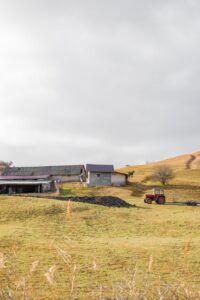Injustice in American Territories

This archived article was written by: Alex Holt
With the 2016 Presidential Election later this year, and everyone already rushing to the polls to cast a ballot for the primaries, it is important to note that there are many Americans who can’t vote for president, nor, the laws that they must follow.
I’m not talking about those Americans who don’t have time to vote, but those who literally don’t have the right to do so. I’m talking about 4.1 million Americans who live in the American Territories. That’s a lot of votes.
The United States owns many territories, including American Samoa, Guam, the Northern Mariana Islands, Puerto Rico, the U.S. Virgin Islands, and the U.S. Minor Outlying Islands (which is actually many territories just grouped together). However, the U.S. Minor Outlying Islands are uninhabited and because palm trees can’t vote, it’s best not to worry about them.
The reason behind the lack of voting rights steams from wording in the U.S. Constitution. The Constitution specifies voting representation in Congress comes from the states, and because electors for president are made up of representatives and senators from the states, territories cannot vote for president.
Even though the territories do elect members to the House of Representatives, they can’t vote on any law, due to them not living in any of the states.
Let’s get deeper into why this is an injustice, starting with Puerto Rico. The colony was acquired after the Spanish-American War and has been a U.S. territory for 118 years. 3.4 million people live in Puerto Rico, which is more than live in 21 of the states.
Puerto Rico also has the most potential to become a state and acts like it’s a state already. Many republican candidates for president express interest in Puerto Rican statehood. Also Puerto Rico has had many referendums in the past that show about half of all Puerto Ricans would have the island join the Union.
This is a sad reality that many Americans who live in America cannot vote for president. It gets even worse for not so populated territories like the U.S. Virgin Islands and the Northern Mariana Islands.
Together they make up 160,000 people, about the population of West Jordan. Many brush off these people due to how statistically insignificant they are, but this is still a large amount of people who cannot vote just because of where they live.
Now we get to Guam. Nearly 25 percent of Guam is owned by the military and one in eight people on Guam are veterans.
The military has had a lot to do with voting rights, especially in the 1960s with the passage of the 26th Amendment. This amendment lowered the voting age from 21 to 18.
This was because Americans who were being sent off to war were under the age of 21 and people agreed that if you were old enough to die for the county, you were old enough to vote in it.
So if one in eight Guamanians are in the military and can’t vote, are we now destroying the basis for the creation of the 26th Amendment? Congress doesn’t think so because when asked about this they cite the Insular Cases.
The Insular Cases state that they don’t have to give these territories the same rights as the states because these inhabitants are quote, “alien races” who cannot “understand Anglo-Saxon principles.”
Instead of giving people their rights, Congress upholds a racist law to deny these people the right to vote.
It gets worse in our last territory of American Samoa. Along with not even being allowed to vote, American Samoans aren’t even citizens, but born American Nationals. To be a citizen, they have to go through the immigration process like anyone else.
It is insulting to them as people. How would it make you feel if the U.S. decided that residents of Carbon County can no longer be born citizens?
Having this status of American National is damaging because it limits your ability to hold elected office or even become a public educator.
These Americans hold the number-one-ranked-army-recruiting station in the county, another attack against the 26th Amendment’s basis.
This again goes back to the Insular Cases which establishes that the U.S. Constitution doesn’t apply to these territories.
Only one U.S. territory does the U.S. Constitution fully apply. This is the small uninhabited Palmyra Atoll, which is home to many coconut trees.
It is sad when those coconut trees have more rights than 4.1 million Americans, and Congress isn’t doing anything about it.
It is up to everyday Americans such as yourself to fight this injustice. We need to make a voice to get Congress to listen to us and get Congress to do something. This is more about voting rights; this is about accepting others as Americans.




